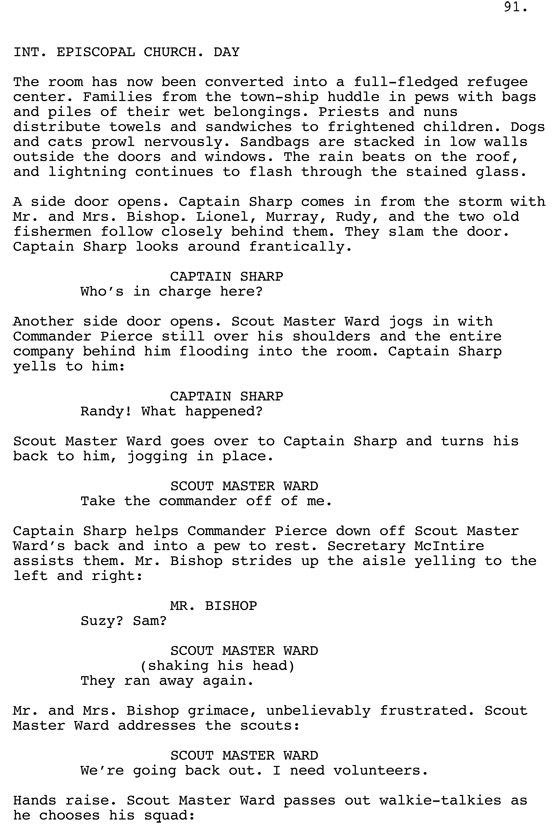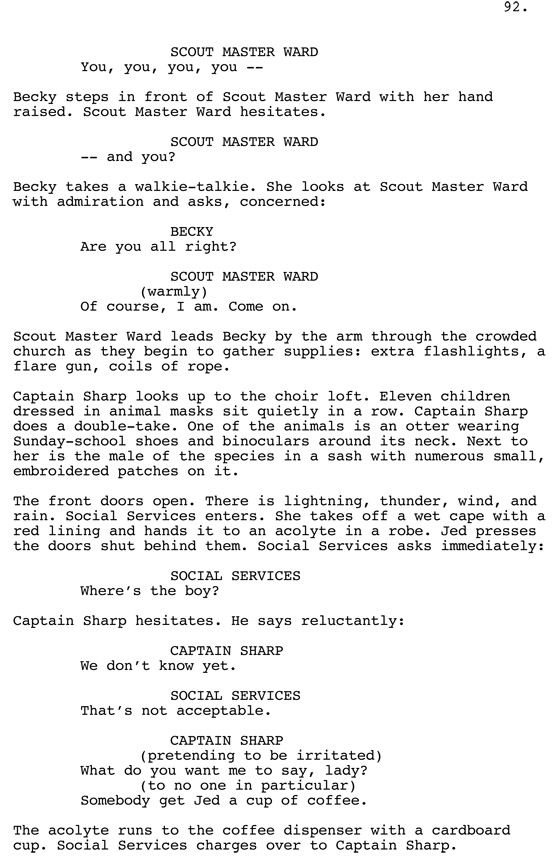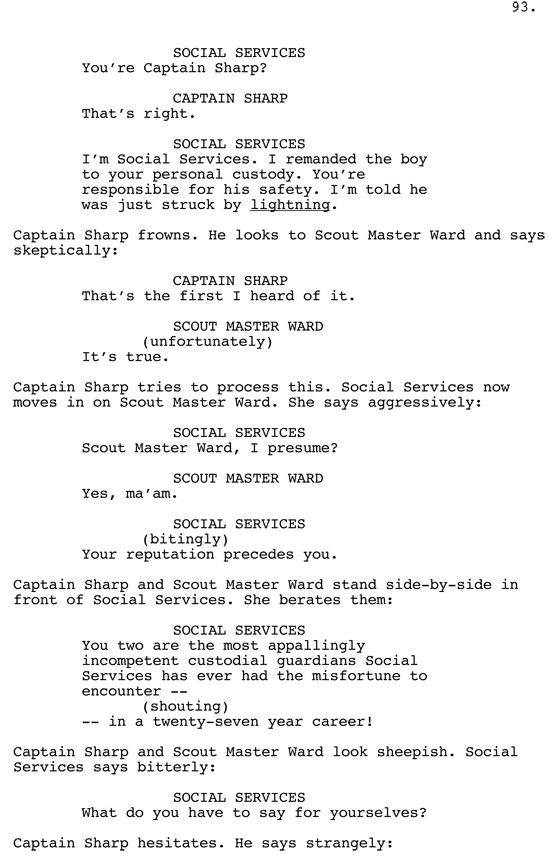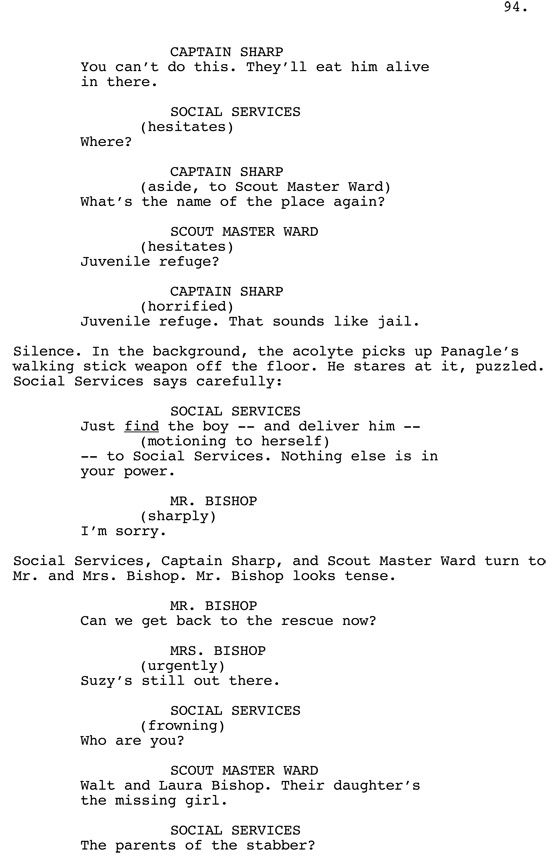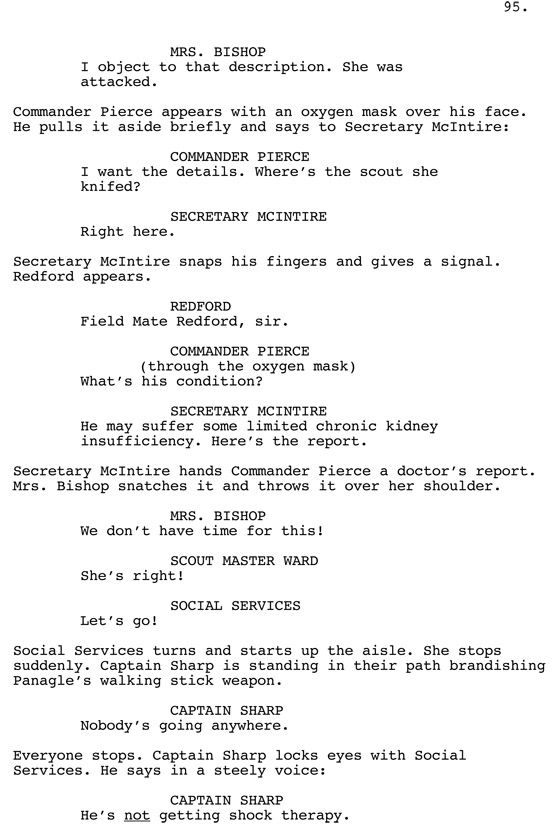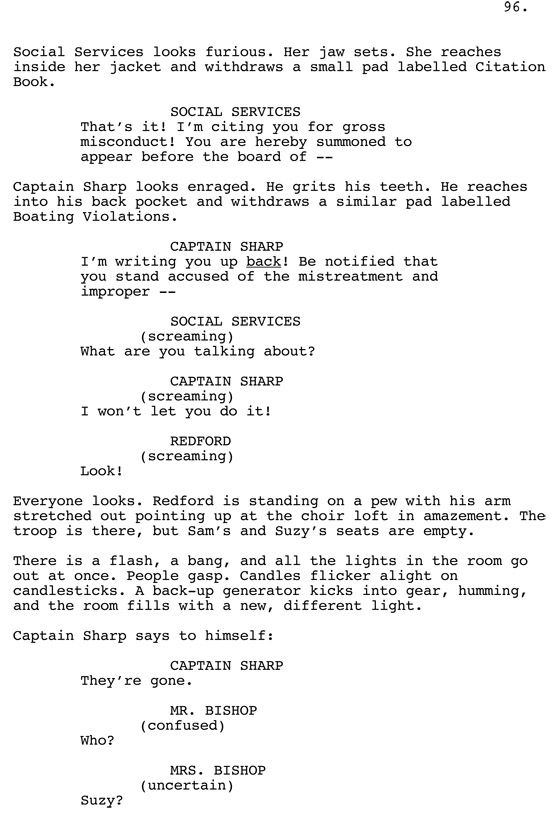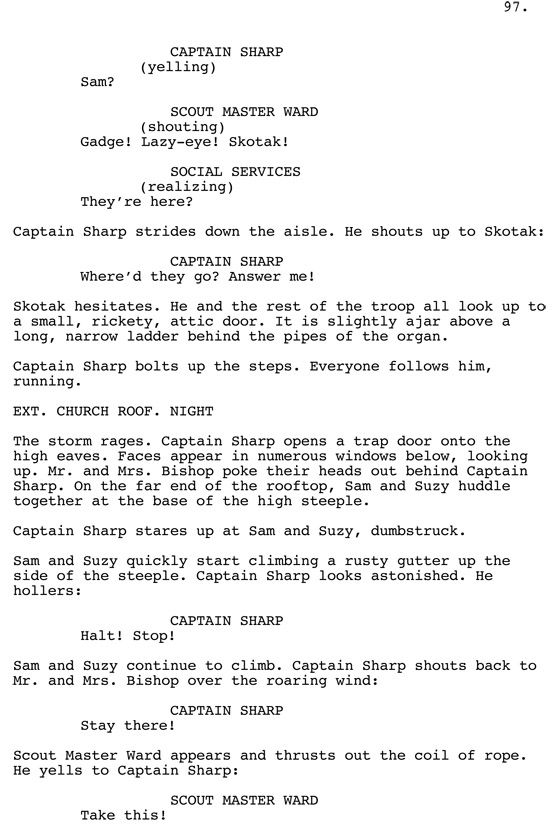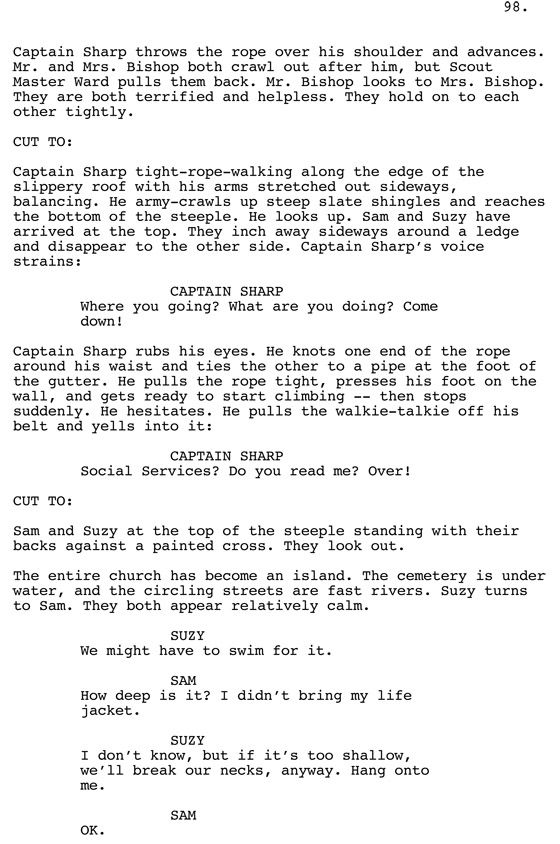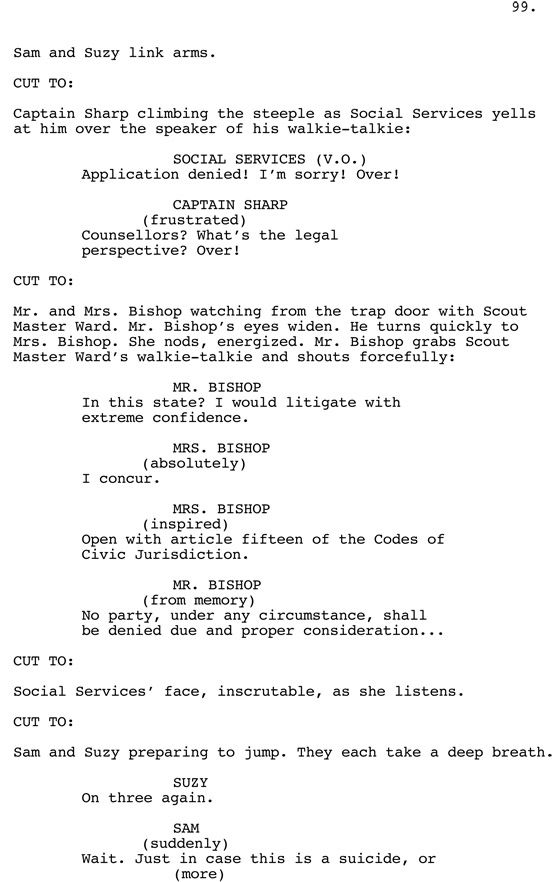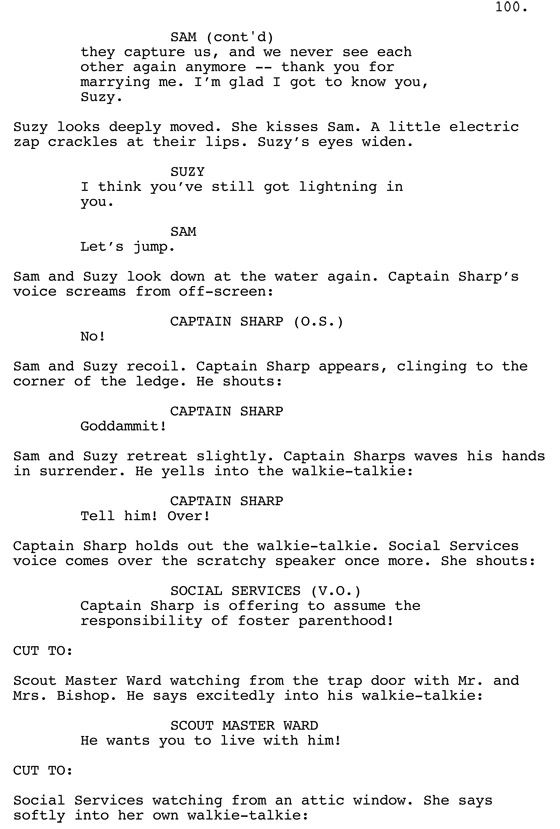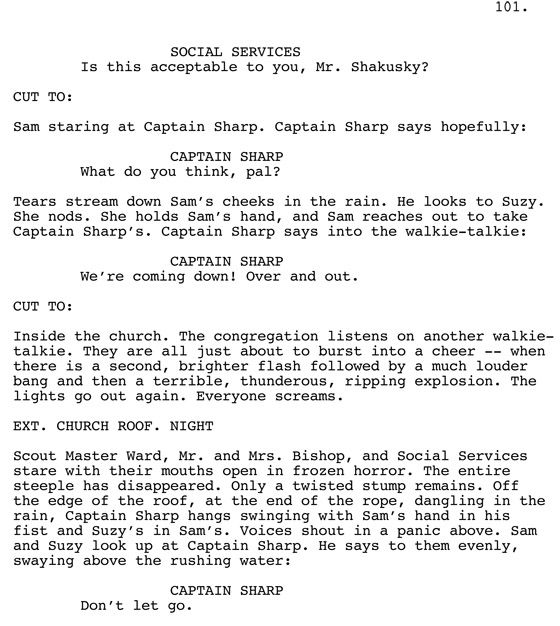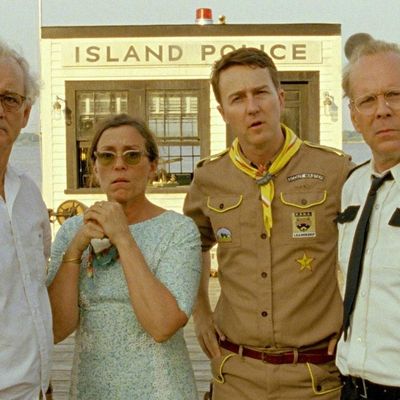
In this recurring feature, Vulture speaks to the screenwriters of 2012’s most notable movies about the scenes that they found most difficult to crack. What pivotal sequences underwent the biggest transformations on their way from script to screen? Today, Oscar-nominated screenwriter Roman Coppola talks to Kyle Buchanan about the climactic sequence to Moonrise Kingdom, which he co-wrote with director Wes Anderson (and naturally, SPOILERS will follow):
Wes conceived this idea and knew he wanted to tell a story about scouting, an island, and young lovers coming together. That was all stuff that had been gestating, and he worked on it for a good amount of time trying to figure it out, but he couldn’t quite crack it. So he showed me a few pages, and I got it. I knew in a very deep way what the movie was, and from that moment, we were on a roll and the whole movie flowed right out. It was that sensation where you’re working on a crossword puzzle and you get over that hump suddenly and you know you’re going to finish.
The final sequence in the church, where all the characters come together, was the trickiest. That scene didn’t exist when Wes came to me. It was hard to balance because it felt like every character needed their moment, but we didn’t want that to feel rote, and we had to wrap it up, but we still wanted an exciting crescendo. Over time, we developed a more exciting, more spectacular ending with the lightning strike, which was something that came after our first draft. But we had to balance that because we had so much wonderful material with Suzy’s parents, Bill Murray and Frances McDormand. And that little moment that happens on the rooftop, where Sam becomes the foster child of Captain Sharp, is a beat that we had to spread out.
When Jason Schwartzman and Wes and I were working together on The Darjeeling Limited, we would each kind of have “our guy” when writing: I was the middle brother, Jason had his character, and Wes was the eldest brother. On this one, it wasn’t quite so delineated, but we very much want to hear the words out loud, so we’ll say the lines to each other and engage in this sort of banter. In that scene where Frances says to Bill, “Does it concern you that your daughter’s run away?” and he says, “That’s a loaded question,” that came from banter. It’s the sort of relaxed discovery you make when you’re not afraid to throw things out that leads to these aha moments where you run to the computer to put it down.
Movies are magical. Sometimes it just works, it catalyzes, and everything falls into place, and no one knows exactly how or why.
